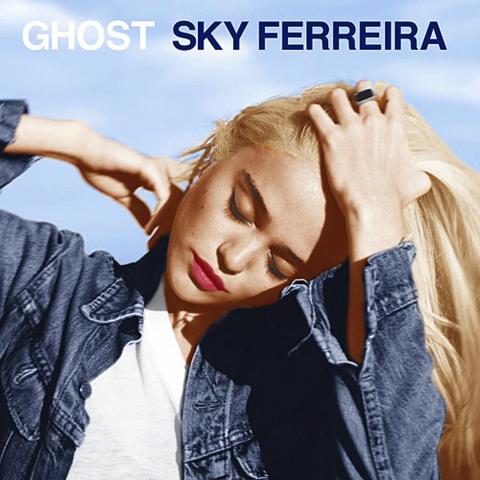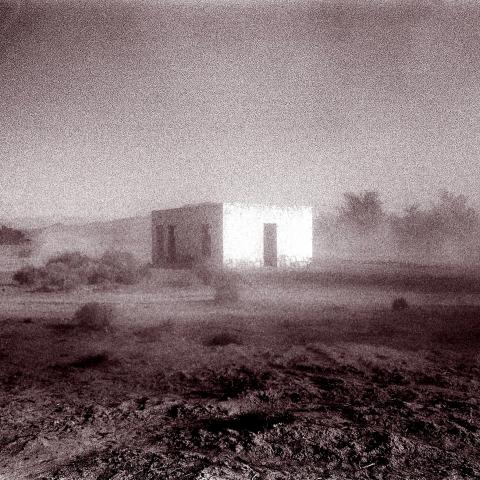The country singer Jason Aldean represents the rural middle of the United States as if he’s rarely been anywhere else. The songs on his fifth album, Night Train, maintain a consistent attitude about that generalized regional identity — not defensive, but comfortably smug.
Enshrining small-town life can give you an obsession with scale: The more meager the town, the more lordly the dreams. So the characters in his songs are average guys with entitled feelings. Most of his songs, which he doesn’t write, are variations on individual will as local style, or vice versa: This is how we do it out here. (“Anyone from the heartland is gonna understand what I’m talkin’ about right now,” he sings in Take a Little Ride.) Even at his most powerful, singing hard in his nasal voice — it’s got impact but not much traction, that voice — Aldean seems to be standing in for larger societal forces, usually involving quitting time and beer.
Night Train is the further refinement of a seven-year formula. Aldean’s songs are thick with electric guitar and draped in ‘80s-style classic-rock solos, sparky but faceless. (How traditional does this band get? There are vestigial drop-ins of mandolin and banjo, and no fiddle; but his steel guitarist, Jay Jackson, has a semiserious role, especially in the biggest songs.) Sometimes the idealized one-stoplight town seems like it might be in New Jersey: Wheels Rollin’ is nearly a rewrite of Bon Jovi’s Wanted Dead or Alive, and the organ buried in the workmanlike riffs carries a whiff of the E Street Band.

Aldean is also doling out careful applications of rap. This started out pretty well on Dirt Road Anthem, from his last album, My Kinda Party; he may have complicated feelings about the success of that song, because he’s put two raps on the new album, and both sound like forced marches. The Only Way I Know, in which Aldean tag-teams with Eric Church and Luke Bryan, gets in its own way with cliches about small-town integrity.
There’s some more rapping on 1994, not good, but easily forgivable: This is a smart song, built almost entirely of lyric fragments from mid-’90s Joe Diffie hits. Credit the song’s writers — Thomas Rhett, Luke Laird and Barry Dean — but 1994 does remind you that Aldean is not a demographic but a specific person of a specific age. In 1994, when Diffie released Third Rock From the Sun, Aldean was 17.
The songs deliver rural details, some fresh, some quite stale: trucks, tractors, liquor, the water tower, the wrecking ball smashing a shuttered factory; the heartbroken stripper in Black Tears whose makeup runs when she cries. And the moon, always the moon. So many moons on this album. The best one arrives in the lusty power-ballad Talk; the line is, “I don’t wanna waste that moon and the heat on the hood of this Ford.” Rhythmically, the words nestle right into the phrasing. They also imply that the moon is Aldean’s to waste.

— BEN RATLIFF, NY Times News Service
Blink and you’ll miss Sky Ferreira — at least, that’s how it’s been for the past few years, as her career has crept forward in fits and starts. A Myspace rat turned would-be major-label pop star, she’s tried everything twice, some things more than that, with varied success. Unlike the young women who’ve had success during the same time period — say, a Katy Perry or a Kesha — Ferreira exudes mellow cool. She’s a pop-music semisocialite who often appears bigger than the need to produce actual music. Success, in fact, may hold her back.
Maybe Ferreira doesn’t care, then? If so, Everything Is Embarrassing, the high point of her new Ghost EP, is counterintuitive and brilliant. A sly, lush postdisco seduction, it’s one of the year’s unlikely pop gems. Ferreira sounds phenomenal, the natural indifference in her voice finally having a suitable home thanks to the production by Ariel Rechtshaid and Devonte Hynes, which never heats up past simmer. As a singer Ferreira can be as square as Laurie Anderson and as evanescently saccharine as Stacey Q; on this song, she’s both, to tremendous effect.

That nothing else on Ghost, her second major-label EP, sounds like this is no surprise. Released in advance of her full-length debut, Ghost is an attempt to be taken seriously or to experiment, or to use all of the available big stage. Any of those strategies alone would be fine; all together, they reflect Ferreira’s lack of a true center. That’s different from being a polymath, which implies natural gifts at several things. Ferreira, though, is more of a slipcover, wrapping tightly around already-set shapes and giving them color and edge.
The filthy sweet Lost in My Bedroom could be an outtake from the Sixteen Candles soundtrack, but Red Lips, written in part by Garbage’s Shirley Manson, begins as a homage to Yes’ Owner of a Lonely Heart and, at the hook, becomes a convincing appropriation of Nirvana’s In Bloom. The remaining songs, Sad Dream and Ghost, are mordant singer-songwriter fare in which the lyrics are darker than Ferreira. Altogether, it’s just another round of throwing ideas at the wall. Everything sticks, more or less. But for how long?
— JON CARAMANICA, NY Times News Service
One way to listen to Allelujah! Don’t Bend! Ascend!, the noisily underwhelming new album by the Montreal band Godspeed You! Black Emperor, is to disable the higher brain functions and let its spookiness wash over you.
There was a time, in the late ‘90s, around the time of its album Lift Your Skinny Fists Like Antennas to Heaven, when this band had new energy and a mysterious cabalistic power. It was a large, loud, instrumental cooperative; double drums, triple guitars and electrified violin field recordings. Its powerful drones sounded like a mode of resistance against the game of popular music, an endurance test, maybe a torrential moan.
Then as now, the band toured with a projectionist who ran film loops of urban blight and police actions, and its volume blasted you to the back wall in small spaces. Like Arcade Fire, a much cuddlier Canadian band upon which it had some influence, Godspeed was an anthem-heaver; its music almost commanded you to feel certain feelings. It could make you experience inspiration or despair; it could also make music that seemed leaden, like most anthems.
But can we talk about echo and spectrality and creepiness? A band making a sound that was bigger than it should be, that threw huge shadows up on a wall, that made you feel a little nervous? Because that’s how Godspeed can still be powerful, both live and on record. (It hasn’t made a new record since 2003; it’s only recently been reanimated, playing shows over the past year and a half.) The meat of the music, when it’s droning steadily in front of you, is grandiose, cold, rigid. But it’s better when surging or receding, swiftly building or dropping out.
The band started selling the new album at gigs during the past month, before its official release Tuesday. The album is less symphonic and textured than the group’s earlier efforts, and feels like a stopgap — more a memento from a current show than a fully blown new work. It includes two 20-minute songs that the band performs now and had also played on tour before its hiatus — Mladic, with an Eastern European folk bounce at the center, and We Drift Like Worried Fire, moving from ballad to dirge to stomp — as well as two shorter pieces, around six minutes, new and moody and far less shaped.
The album wears thin in totality, but has isolated moments: entrances and releases and dropouts. One comes 15 minutes into Worried Fire, when a march rhythm moves into a slightly faster 4/4 groove and the whole song lifts, giving you a pretty solid 90-second high before the repetition lets you down again. And there’s another on Strung Like Lights at Thee Printemps Erable, one of the shorter tracks, where a feedback tone like an ice burn, bolstered by a low-end rumble, suddenly disappears at 4:32, leaving behind weird, echoey, warped-sounding loops. It’s dark and suggestive music: You can almost see it as physical shapes.
— BEN RATLIFF, NY Times News Service

The canonical shot of an East Asian city is a night skyline studded with towering apartment and office buildings, bright with neon and plastic signage, a landscape of energy and modernity. Another classic image is the same city seen from above, in which identical apartment towers march across the city, spilling out over nearby geography, like stylized soldiers colonizing new territory in a board game. Densely populated dynamic conurbations of money, technological innovation and convenience, it is hard to see the cities of East Asia as what they truly are: necropolises. Why is this? The East Asian development model, with

June 16 to June 22 The following flyer appeared on the streets of Hsinchu on June 12, 1895: “Taipei has already fallen to the Japanese barbarians, who have brought great misery to our land and people. We heard that the Japanese occupiers will tax our gardens, our houses, our bodies, and even our chickens, dogs, cows and pigs. They wear their hair wild, carve their teeth, tattoo their foreheads, wear strange clothes and speak a strange language. How can we be ruled by such people?” Posted by civilian militia leader Wu Tang-hsing (吳湯興), it was a call to arms to retake

This is a deeply unsettling period in Taiwan. Uncertainties are everywhere while everyone waits for a small army of other shoes to drop on nearly every front. During challenging times, interesting political changes can happen, yet all three major political parties are beset with scandals, strife and self-inflicted wounds. As the ruling party, the Democratic Progressive Party (DPP) is held accountable for not only the challenges to the party, but also the nation. Taiwan is geopolitically and economically under threat. Domestically, the administration is under siege by the opposition-controlled legislature and growing discontent with what opponents characterize as arrogant, autocratic

When Lisa, 20, laces into her ultra-high heels for her shift at a strip club in Ukraine’s Kharkiv, she knows that aside from dancing, she will have to comfort traumatized soldiers. Since Russia’s 2022 invasion, exhausted troops are the main clientele of the Flash Dancers club in the center of the northeastern city, just 20 kilometers from Russian forces. For some customers, it provides an “escape” from the war, said Valerya Zavatska — a 25-year-old law graduate who runs the club with her mother, an ex-dancer. But many are not there just for the show. They “want to talk about what hurts,” she